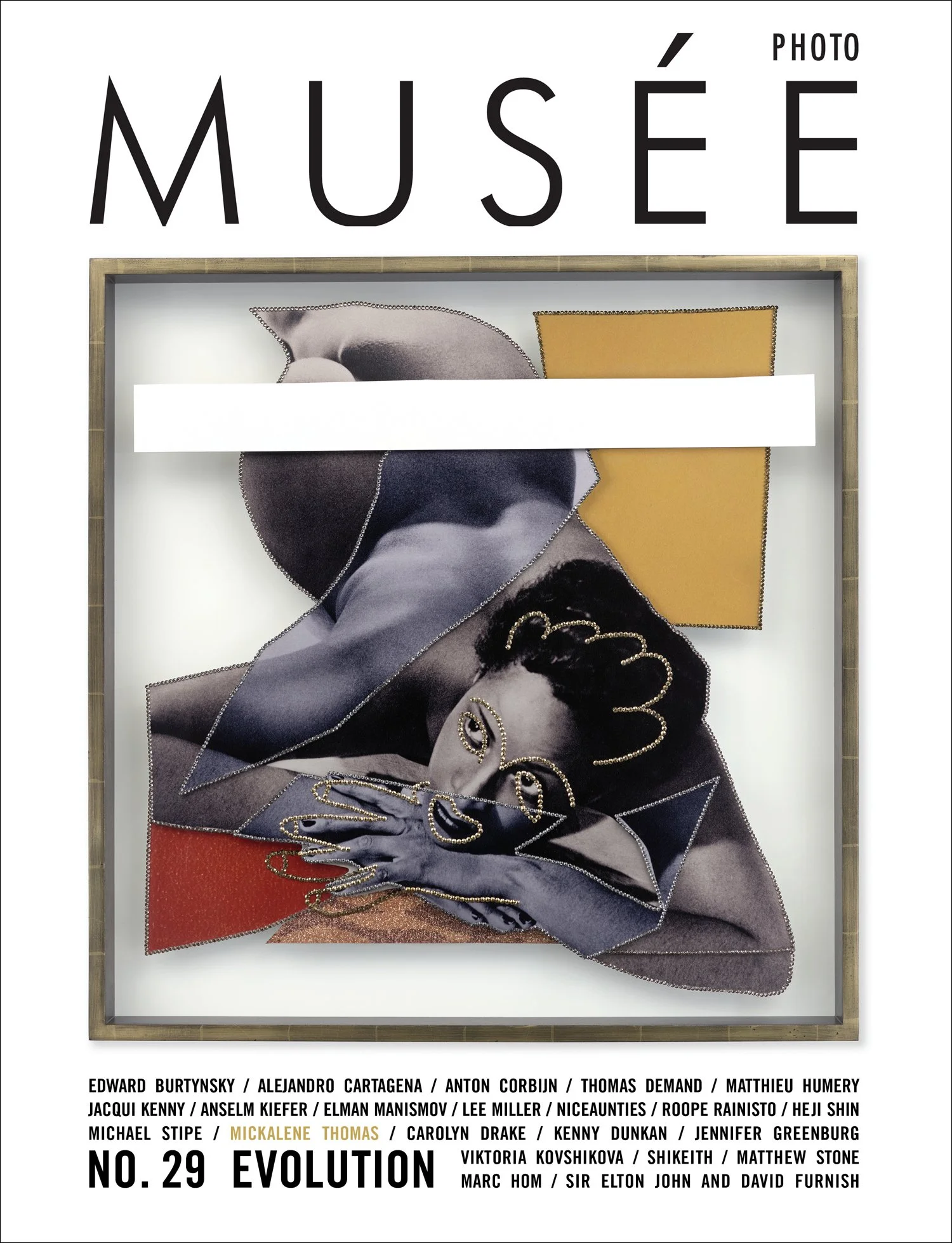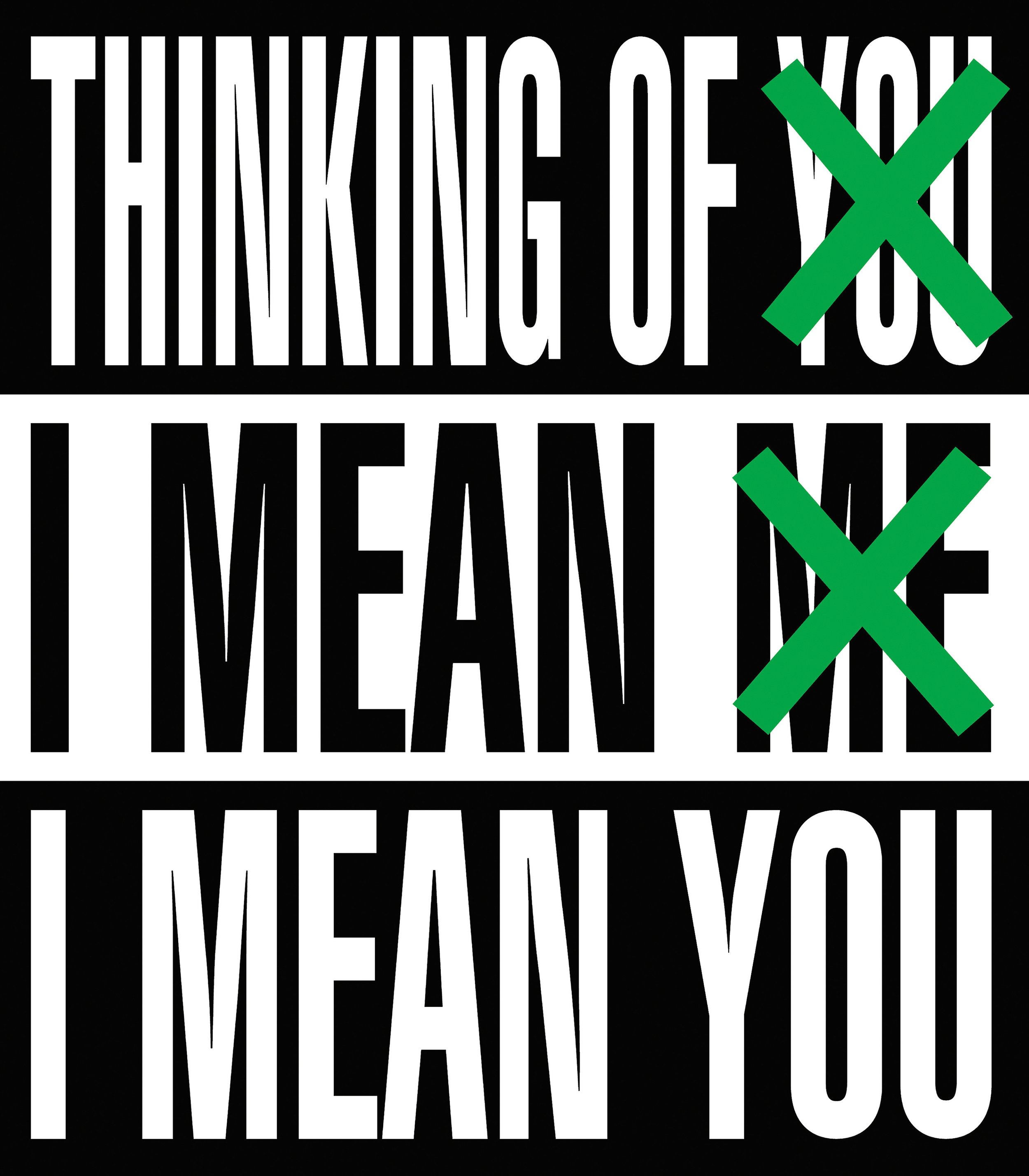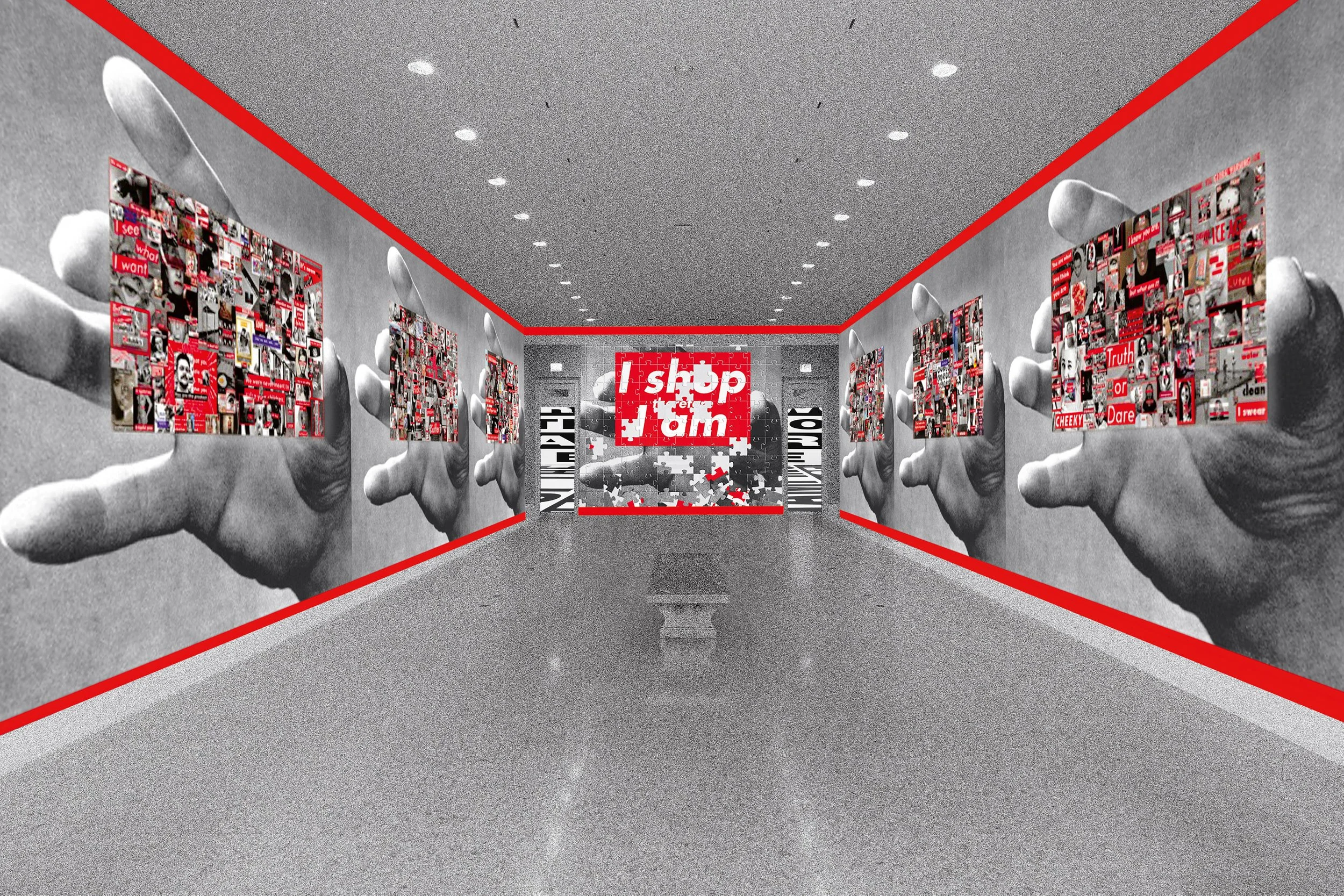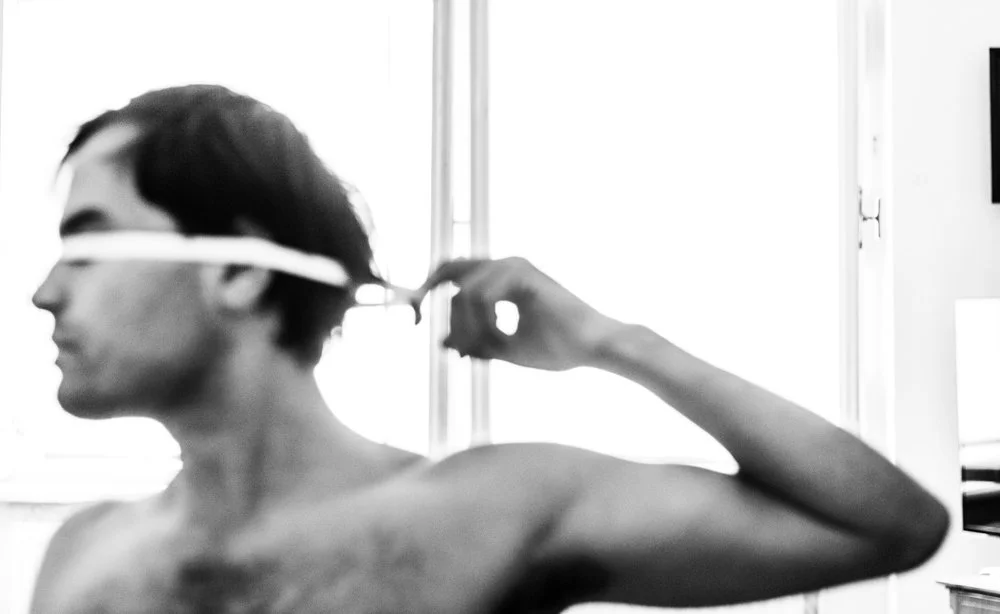Exhibition Review: Barbara Kruger: THINKING OF YOU. I MEAN ME. I MEAN YOU.
Barbara Kruger. Thinking of You. I Mean Me. I Mean You., 2019. Digital image courtesy of the artist.
By Nemo Chen
Edited by Ben Blavat
When pedestrians in Chicago stroll through the city streets in the fall breeze, they pass by massive billboards featuring an image with unique white letters emblazoned on red or black backgrounds. The extensive and engaging Barbara Kruger exhibition THINKING OF YOU. I MEAN ME. I MEAN YOU. opened at the Art Institute of Chicago in September.
Barbara Kruger is a contemporary conceptual artist known for her combination of genre and image. Kruger uses humorous, vigilant and sympathetic artistic attitudes to reveal social issues, such as identity politics, human desire, mass media and consumerism. In this exhibition, her immersive art installations, combined with widely disseminated images and provocative words, challenge us to rethink our relationships with the world, each other, and ourselves.
Barbara Kruger. Artist’s rendering of exhibition entryway at the Art Institute of Chicago, 2011/2020. Digital image courtesy of the artist, source photo courtesy of the Art Institute of Chicago.
This is Barbara Kruger’s first major solo exhibition in two decades. From the early Paste Up to her digital creations, this exhibition displays work from throughout Kruger's career. Vinyl pieces, site-specific installations, animation and multi-channel videos are among the works on display. In lieu of a retrospective exhibition, Kruger challenged the concept of career building and a rigorous chronology. She has redesigned, reinterpreted and reconstructed her work over the decades for the ever-changing present. Since Kruger has risen as one of the country's most uncompromising conceptual artists, the stereotype of the media has undergone almost incomprehensible changes. However, Kruger kept up with it in her own way, turning to different presentations and media models to refine her message.
Barbara Kruger. Untitled (Forever), 2017. Installation view, Sprüth Magers, Berlin, 2017–18. Amorepacific Museum of Art (APMA), Seoul. Photo by Timo Ohler and courtesy of Sprüth Magers.
Barbara Kruger. The Globe Shrinks, 2010. Installation view, Sprüth Magers, Berlin, 2010. Courtesy of the artist and Sprüth Magers. Photo by Jens Ziehe and courtesy of Sprüth Magers.
In this extensive survey, the typical display space is not a constraint for Kruger’s presentation. Her texts and images spread across the entire building space of the museum and extend to various public spaces, integrating with the surrounding urban landscape. Kruger is turning Chicago into her own collage, cutting and pasting her creations onto billboards, storefronts along Michigan Avenue and the city’s buses and trains. In the interior of the museum, curators and workers invest massive efforts to build up the best visual and sonic environment and to create an immersive experience for the audiences. They not only display several of the artist's iconic works as moving images on LED screens, but also installed speakers throughout the museum to project Kruger's immersive sound installations.
Barbara Kruger. Untitled (Truth), 2013. Collection of Margaret and Daniel S. Loeb. Digital image courtesy of the artist.
One of Kruger’s most salient themes over the years has been women’s oppression. Untitled (Your body is a battleground) (1989) is undoubtedly one of her most iconic works. The silkscreen poster shows a woman's face in black and white, the left half in the positive and the right half in the negative, overlaid by a red slogan.
Kruger created this photograph to support the Women's March on Washington and protest anti-abortion laws in many U.S. states that undermine Roe v. Wade's 1979 decision. Kruger describes the societal stereotype of women, how women are treated as products of society rather than as individuals. This work embodies Kruger's personal views, opposing the infringement of women's rights and the influence and control of patriarchy. In addition to serving as a form of protest, this piece is a call for a public response to these issues. Even in the modern social context, women are still evaluated and judged by their physical characteristics. The implications of this artwork are widely extended in terms of how we view the female body and gender inequality today.
Barbara Kruger. Untitled (Brain), 2007. Private collection, Delaware. Courtesy of Art Finance Partners, LLC. Photo courtesy of Mary Boone Gallery, New York.
Kruger is well versed in using collage to separate and combine mature mass media images, implant new propositions and show the subjectivity and circumstances of history, which contains much more than the information conveyed by the original images. Her images break away from the capitalistic colors originally used in advertisements, and the bright red-and-white slogans force people to break away from the context of consumption and enter a critical perspective.
Barbara Kruger. Untitled (Forever), 2017. Installation view, Sprüth Magers, Berlin, 2017–18. Amorepacific Museum of Art (APMA), Seoul. Photo by Timo Ohler and courtesy of Sprüth Magers.
Kruger constructed her own visual space, inundated the audience with overwhelming and aggressive images and words, and even used the conflict of offense and invasion to arouse the audience's spiritual thinking about the subject and self. She frequently uses personal pronouns "you," "me" and "us" in her works, penetrating the distance between art and the viewer. The halo, in the traditional sense, is mercilessly broken.
THINKING OF YOU. I MEAN ME. I MEAN YOU. is on view at the Art Institute of Chicago through Jan 24, 2022.














